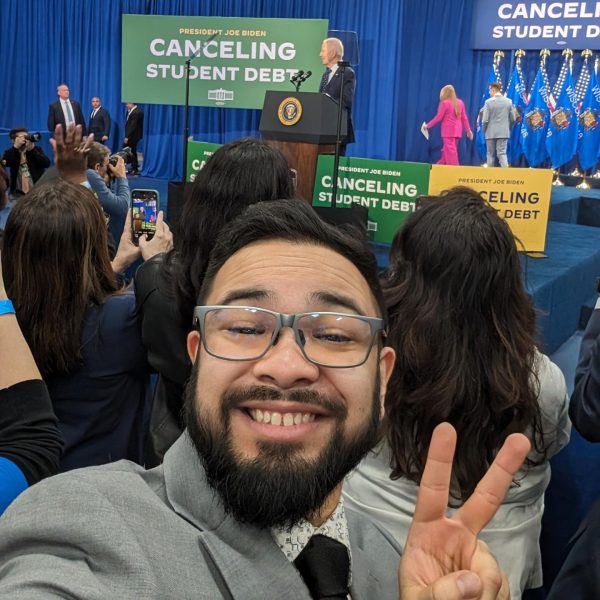Its time to end gun violence
November 21, 2017
On Oct. 1, 2017, in Las Vegas, Stephen Paddock opened fire on a large group of concert goers, killing 58 and wounding 527 before killing himself, making it the worst mass shooting in American history.
Police say that Paddock had 23 firearms in his hotel room and an additional 19 at one of his two homes. Authorizes have determined that 33 of these were purchased legally within the past 12 months.
Today, gun control is the subject of intense debate in America, but it is only since the Columbine High School shooting that people really started debating the matter. Since the 1999 attack at Columbine High School, there have been 55 mass shootings, killing over 1000 people.
The solution to the problem is stronger gun control. Smarter laws need to be passed to deal with this issue, since the current laws do not seem to be stopping the problem. Unfortunately, gun control has not earned the changes it deserves.
The main issues with the laws is how easy it is to obtain a gun in the United States. For example, Americans can acquire a gun very easily from major retail stores, such as Walmart and ShopKo, and sports stores like Dick’s Sporting Goods, Cabela’s, Gander Mountain, as well as online. To make matters a lot worse, ammunition can be bought at cheap prices and in bulk at any number of these stores.
There are no laws limiting how many guns one can have in their household. The Second Amendment of the U.S. Constitution states: “A well-regulated Militia, being necessary to the security of a free State, the right of the people to keep and bear Arms, shall not be infringed.”
This amendment was restricted by the “Gun Control Act of 1968 which prohibited the sale of firearms to persons under 18 years of age, those with criminal records, the mentally disabled, unlawful aliens, dishonorably discharged military personnel, and others.”
In 1993, the law was further amended by the Brady Handgun Violence Prevention Act, which mandated background checks for all unlicensed persons purchasing a firearm from a federally licensed dealer.
Even though all the laws are followed, they do not seem to protect the people that suffered in the shooting spree. Stephen Paddock met all of the requirements for owning a gun. Obviously, there needs to be better gun control laws with harsher consequences. Maybe if the laws were stricter, it would be impossible to obtain the guns necessary for a mass shooting.
In light of the most recent mass shooting and for the many that will follow, it seems that the main issue behind most sprees is poor background checks on the person buying the guns. Today in the United States, most anyone can operate and own a gun.
The Law Center to Prevent Gun Violence claims “there are only three things that are holding a person back from owning a gun: 1) Is a danger to himself or to others; 2) Lacks the mental capacity to contract or manage his own affairs; 3) Is found insane by a court in a criminal case, or incompetent to stand trial.”
The only way to determine if somebody is unfit to own a gun is if a crime has already been committed by that person. By then, it is too late! In the case of Stephen Paddock, there is very little known about his background. His family says he was a very loving man whose family had a lot of money. The motive behind his actions are still unknown.
The solution to this problem is not just background checks on everybody buying a gun, but smart gun control should increase in America. There are many groups that deal with background checks, such as the FBI, NRA, CIA, the NSA, and the federal government. However, they are not preventing the wrong people from getting guns. What is needed is practical measures for gun control, based on research.
Nicholas Kristof argues we need to “keep guns away from high-risk individuals, such as criminals, those who abused alcohol, or those who beat up their domestic partners.”
Even the National Rifle Association acknowledges “74 percent even of N.R.A. members are in favor of universal background checks to acquire a gun or ammunition.” If background checks are given, more people will be saved and less harm will come to unarmed civilians.
However, most people who commit gun violence have no criminal or psychiatric record. Therefore, gun control seems to be the only answer. A good example of gun control working is Australia.
After a mass shooting in 1996, the Australian government banned automatic and semiautomatic firearms, adopted new licensing requirements, established a national firearms registry, and instituted a 28-day waiting period for gun purchases. They also raised taxes to buy and destroyed more than 600,000 civilian-owned firearms. The number of mass shootings in Australia dropped from 13 in the 18-year period before 1996 to zero after the Port Arthur massacre. Not only are mass shootings down, but total gun deaths are way down, too-homicides dropped 59 percent and suicides dropped 65 percent.
If Steven Paddock was limited the number of guns he could own, the outcome of history may have changed. Under federal law, gun stores are required to report multiple handgun purchases, but not multiple rifle purchases. Also, everybody should have a background check before purchasing any kind of gun. This would reduce the number of murders, accidents, and self-harming with guns. Any modifications made to a gun should be outlawed.
However, the best solution would be gun control. There really is no comparison of the impact of an attacker with a semiautomatic gun with one brandishing a knife. Take the guns away and killing gets a lot harder.










